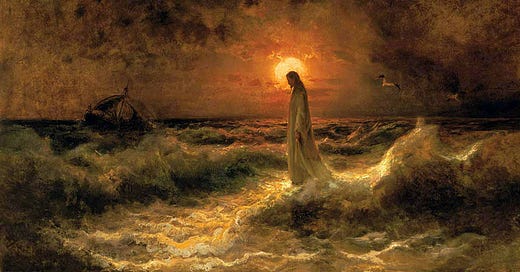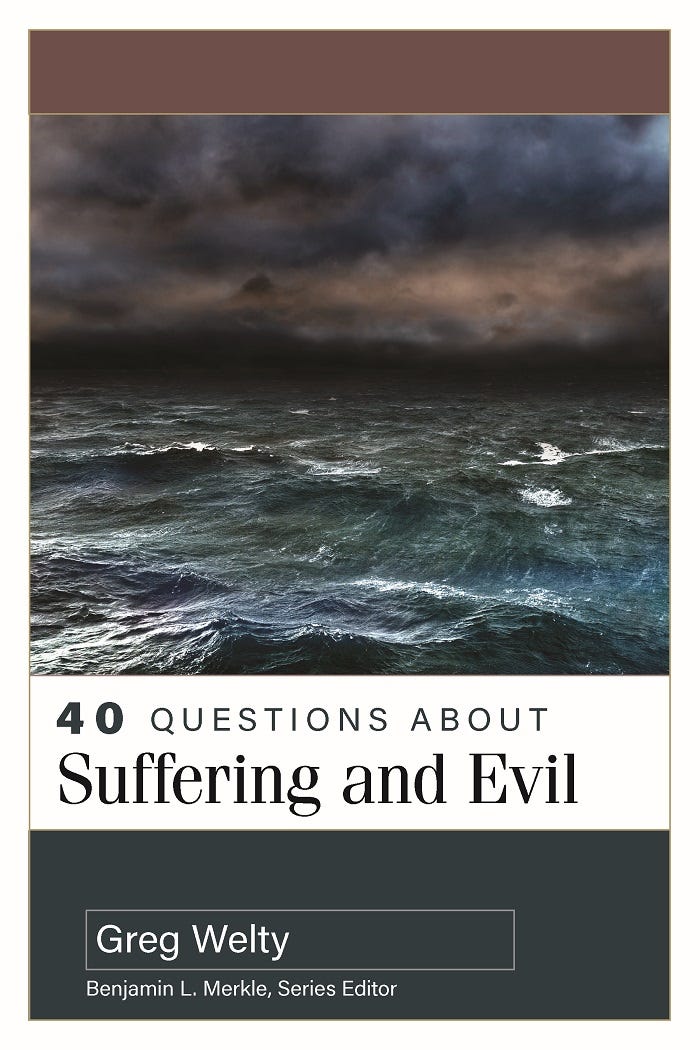Philosophers and sociologists have observed that in the wake of the European Enlightenment of the 17th and 18th centuries, we now live in a disenchanted age. Many modern people believe the universe is governed exclusively by impersonal physical laws, and that the sacred and transcendent are illusory ideas belonging to a bygone era.
According to Richard Dawkins, for example: “The nineteenth century is the last time when it was possible for an educated person to admit to believing in miracles like the virgin birth without embarrassment. When pressed, many educated Christians are too loyal to deny the virgin birth and the resurrection. But it embarrasses them because their rational minds know that it is absurd, so they would much rather not be asked.”
Some who propose to speak for Christianity adopt the same viewpoint. Lutheran theologian and New Testament scholar Rudolph Bultmann declared, “It is impossible to use electric light and the wireless and to avail ourselves of modern medical and surgical discoveries, and at the same time to believe in the New Testament world of spirits and miracles. We may think we can manage it in our own lives, but to expect others to do so is to make the Christian faith unintelligible and unacceptable to the modern world.”
Against the backdrop of our modern naturalistic worldview, it’s unsurprising that many today reject miracles out of hand. Yet there are good reasons to spurn this skepticism and to believe that miracles can and do happen. Christianity is founded on miracles (chiefly, the incarnation and resurrection), and if miracles were refuted, Christianity would crumble (e.g., 1 Cor. 15:13–14).
What Is a Miracle?
Before discussing whether miracles are possible, we should first establish what we mean by a miracle. Christian philosopher Robert Larmer’s definition is helpful: “a miracle [is] an unusual and religiously significant event which reveals and furthers God’s purposes, is beyond the power of physical nature to produce in the circumstances in which it occurs, and is caused by an agent who transcends physical nature.”
A couple of things about this definition are worth highlighting. First, if nature is left to itself, a miracle will not occur. Miracles are brought about by transcendent agents—either God or angels. Several biblical passages refer to angels performing miracles (e.g., Matt. 28:2-4; Luke 1:19-20; Acts 5:19–20). Satan can also generate supernatural phenomena (e.g., 2 Thess. 2:9–10), but such actions do not qualify as miracles in this definition.
Second, in addition to being an extraordinary event, a miracle must also, in Larmer’s words, be “an event that has religious significance in the sense that it can reasonably be viewed as furthering God’s purposes.” Jesus’s resurrection, for example, provided evidence of His divine status and authority (John 2:19–22; Acts 17:31). It’s not always immediately clear whether an extraordinary event will further God’s purposes; it sometimes takes time to see what the fruit of the occurrence will be and whether it should ultimately be viewed as a miracle from God.
Are Miracles Possible?
We now turn to the question of whether miracles, as defined above, are possible. We can begin by conceding this: If one accepts a naturalistic view of the world, then miracles are extremely improbable. The universe appears to follow physical laws, and we rarely observe phenomena that look like exceptions to the rules. Further, if we did observe something that looked like an exception, that would be evidence that we haven’t yet grasped whatever physical mechanism produced it.
On the other hand, if God exists, He is perfectly capable of acting within His creation, and we have good reason to believe that He would do so to interact with his creatures. The one who claims miracles are impossible would have to show that it is impossible that God exists, which is an insurmountably high burden of proof.
Thus, our background assumptions play a decisive role in how we view the question of miracles. If our worldview forbids a transcendent agent from intervening in the world, then we will deny miracles are possible. If, however, we grant that God exists, or may exist, miracles become possible and perhaps likely.
Allowing the possibility of miracles seems to bring up a worry: If we do so, the universe would suddenly become chaotic and unpredictable. Among other things, this would negate scientific study. But as philosopher Richard Purtill points out, we encounter exceptions to general rules all the time, yet these exceptions don’t nullify what we ordinarily expect. For example, children sometimes skip grades in school, but this doesn’t disrupt the education system. We sometimes have holidays and vacations, but this doesn’t interfere with our ability to otherwise work normally. Governors of states can issue occasional pardons, but this doesn’t lead to the collapse of the justice system.
Similarly, a miracle can occur without obliterating all that we know and expect about the natural world. Thus, writes Purtill, “Scientists, as such, have no concern with miracles, for they cannot predict them, bring them about, or draw from them any conclusions about the future course of nature. A miracle is supernatural and therefore of no scientific interest.”
C. S. Lewis makes the even-stronger point that the best guarantor of the uniformity of nature is God Himself. (We can’t pursue this point here, but historians of science have argued that this is the very reason modern science arose only in Christian Europe—because of its belief in a rational God who created a law abiding world.) Lewis writes in his book Miracles:
Theology says to you in effect, “Admit God and with Him the risk of a few miracles, and I in return will ratify your faith in uniformity as regards the overwhelming majority of events” . . . The alternative is really much worse. Try to make Nature absolute and you find that her uniformity is not even probable. By claiming too much, you get nothing . . . Theology offers you a working arrangement, which leaves the scientist free to continue his experiments and the Christian to continue his prayers.
Contrary to Richard Dawkins’s assertion above, Christians should feel no embarrassment in affirming the miracles of Scripture, or other bona fide miracles. Given the impossibility of demonstrating God’s nonexistence, skeptics ultimately have no grounds for denying that miracles are possible.
A related question naturally arises—whether we have any evidence that miracles have, in fact, happened. Christian scholars have made very strong cases for the historicity of Jesus’s resurrection. Interested readers should consult books on the topic by William Lane Craig, Gary Habermas, and Michael Licona. For a defense of biblical miracles, along with scores of documented cases of modern-day miracles, two excellent resources are Miracles: The Credibility of the New Testament Accounts and Miracles Today: The Supernatural Work of God in the Modern World, both by Craig S. Keener.
— Christopher L. Reese (MDiv, ThM) is the founder and editor of The Worldview Bulletin and a general editor of the Dictionary of Christianity and Science (Zondervan) and Three Views on Christianity and Science (Zondervan). He is the author of 100 Old Testament Quotes by Jesus: How Christ Used the Hebrew Scriptures (Rose/Tyndale), and his articles have appeared in Christianity Today, The Christian Post, Bible Gateway, Beliefnet, Summit Ministries, the C. S. Lewis Institute, and other sites.
*This article originally appeared at The C. S. Lewis Institute.
image: Christ Walking on the Waters
If every reader of The Worldview Bulletin donated just one dollar, we could equip and encourage hundreds of new Christian readers this year!
[In partnership with]
On the Resurrection, Volume 2: Refutations
While evidence for Christ’s resurrection abounds, there are still those who posit alternative explanations for the empty tomb. In On the Resurrection, Volume 2: Refutations, Gary Habermas offers detailed analyses and rebuttals of the alternate theories surrounding Jesus’s resurrection.
Comprehensive in scope, On the Resurrection, Volume 2: Refutations addresses topics such as:
Second-century texts that seem to challenge the resurrection
Hume’s arguments against miracles
The naturalism and skepticism of nineteenth-century German liberalism
Alternative theories such as the disciples or others stealing the body, the “swoon” theory, hallucinations, and mythological understanding.
Habermas engages critically with the arguments and offers a comprehensive apologetic for the reality of Christ’s resurrection.
“This series confirms Habermas’s status as the leading voice among an increasing number of eminent scholars openly affirming the strong evidence for Jesus's resurrection.”
— Craig S. Keener, F.M. and Ada Thompson Professor of Biblical Studies, Asbury Theological Seminary
“Professor Gary Habermas has made studying the resurrection of Jesus Christ his life’s work. Probably no one else on the planet has researched or documented the relevant arguments in greater detail.”
— Peter Williams, principal, Tyndale House, Cambridge, United Kingdom
See our recent excerpt from On the Resurrection, Volume 2: Refutations here.
Find On the Resurrection, Volume 2: Refutations at Amazon, Barnes & Noble, Christianbook.com, and Books-a-Million.
40 Questions About Suffering and Evil
Both inside and outside the Christian faith, many difficult realities trouble human hearts and minds. By being equipped to answer questions about suffering and evil, Christians can persevere in faith, share their faith, and defend the faith when confronted with these inevitable challenges of living in a fallen world. Greg Welty explores vital ideas, backgrounds, and issues, answering questions like these:
What is the difference between Moral Evil and Natural Evil?
What is the Bible's role in helping us understand suffering and evil?
Does God will all suffering and evil?
How is the gospel relevant to counseling those who suffer?
Welty provides biblically informed intellectual resources for answering significant questions about suffering and evil, exposing readers to a wide range of influential views articulated by Christians over the past two millennia.
“Greg Welty writes with insight and clarity on what is, and always has been, the primary objection to Christian faith: Why doesn’t God do more to stop suffering? 40 Questions about Suffering and Evil is helpfully arranged with clear questions matched to easily accessible answers. Whether considering how best to respond to a questioning friend, preparing to preach or teach, guiding your kids, or finding encouragement for your own faith, Dr. Welty’s book is one you’ll want close at hand.”
― J. D. Greear, Pastor, The Summit Church, Raleigh-Durham, NC
“This book is an extraordinary resource, and I am thrilled to see it published. Without hesitation, this will be the very first volume I point people to as they explore the theological and philosophical questions surrounding evil and suffering.”
— Jamie Dew, President and Professor of Christian Philosophy, New Orleans Baptist Theological Seminary
Read our excerpt from 40 Questions about Suffering and Evil here.
Find 40 Questions about Suffering and Evil at Amazon, Barnes & Noble, and Christianbook.com.
Advertise in The Worldview Bulletin
Do you have an educational institution, ministry, book, course, conference, or product you’d like to promote to 7,971 Worldview Bulletin readers? Click here to learn how. We’re currently booking for July-August.







The reason people don't believe in miracles is because they don't believe Jesus was the son of God.